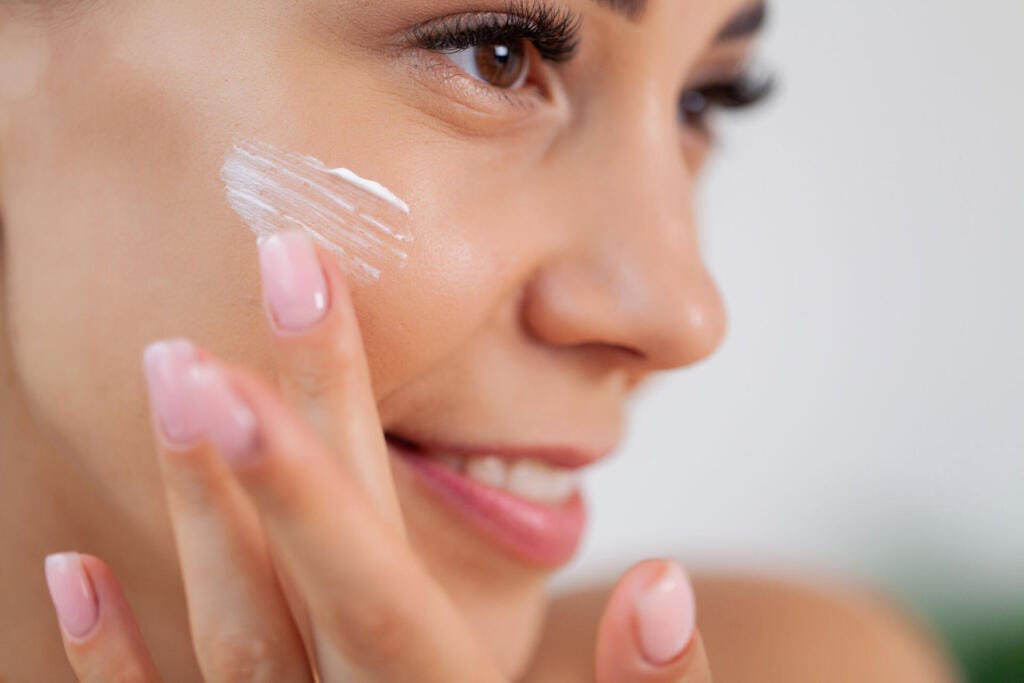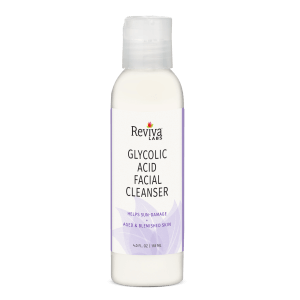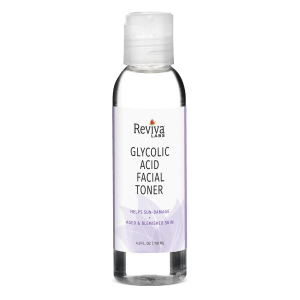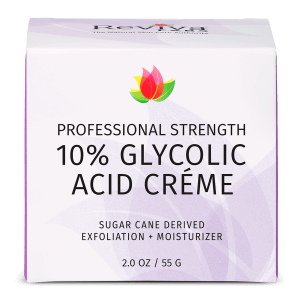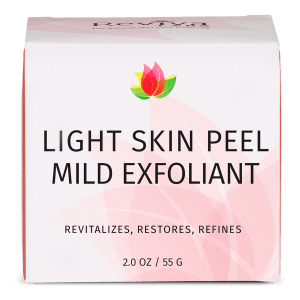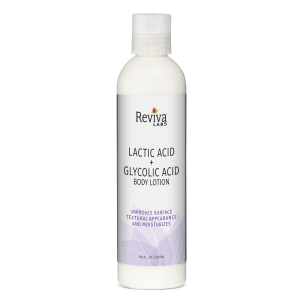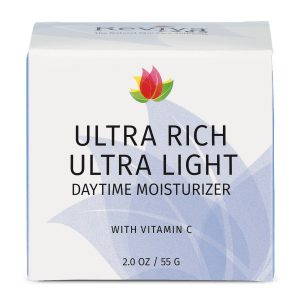Ingredients, Natural, Reviva Labs, Skin Care
Acids That Truly Work for Acne-Prone Sensitive Skin
Acne-prone sensitive skin can feel like a minefield. You want clear, glowing skin, but one wrong product can lead to redness, irritation, or a fresh breakout. If you’ve ever felt overwhelmed by skincare options, you’re not alone! The good news is that certain acids, when chosen wisely, can transform your skin without wreaking havoc on its delicate barrier. Let’s explore how the right acids can balance and heal sensitive, acne-prone skin without the sting.
Why Acids Are Game-Changers for Acne and Sensitivity
Acids may sound intimidating, especially if your skin reacts easily, but they’re actually some of the most effective tools for managing breakouts and improving skin texture. They work by gently exfoliating dead skin cells, unclogging pores, and calming inflammation. Unlike traditional scrubs, which can be abrasive, acids perform their magic invisibly, giving your skin a smoother, more radiant appearance.
The best part? Many acids come with additional benefits, like reducing hyperpigmentation or hydrating the skin. When used correctly, they’re not just for acne—they’re for building healthier, stronger skin.
The Acids That Work Without Overwhelming Sensitive Skin
Salicylic Acid: The Pore-Clearing Powerhouse
If acne had an archenemy, it would be salicylic acid. This beta hydroxy acid (BHA) is oil-soluble, meaning it dives deep into your pores, unclogging them from within. It’s particularly effective for blackheads and whiteheads.
Sensitive skin often balks at potent treatments, but salicylic acid is different. In lower concentrations (around 0.5–2%), it can deliver results without causing dryness or irritation. When paired with a soothing formula, salicylic acid works to reduce inflammation and keep acne at bay while respecting your skin’s delicate nature.
Glycolic Acid: The Resurfacing All-Star
Glycolic acid, an alpha hydroxy acid (AHA) derived from sugarcane, is often hailed as one of the most effective exfoliators in skincare. What sets glycolic acid apart is its small molecular size, which allows it to penetrate deeply into the skin. This makes it particularly effective for addressing clogged pores, uneven texture, and dullness—all common concerns for acne-prone skin.
However, sensitive skin needs a cautious approach with glycolic acid. While it’s highly effective at sloughing off dead skin cells and speeding up cell turnover, it can be a bit too potent if overused. Starting with products containing 5–10% glycolic acid and using them no more than two to three times a week can help your skin reap the benefits without irritation. Many glycolic acid products are now formulated with soothing ingredients, such as aloe vera or panthenol, to counteract potential sensitivity.
In addition to fighting acne, glycolic acid also promotes collagen production and reduces hyperpigmentation over time. This makes it a great choice if you’re looking to tackle not just breakouts, but also the scars and marks they leave behind. Just be sure to pair it with sunscreen during the day, as glycolic acid can increase your skin’s photosensitivity. For those with sensitive skin, slow and steady wins the race with this powerhouse acid!
Lactic Acid: Gentle Yet Mighty
Derived from milk, lactic acid is an alpha hydroxy acid (AHA) loved for its gentleness. It exfoliates the surface layer of the skin, revealing fresher, smoother skin underneath. What makes lactic acid stand out is its hydrating properties.
For sensitive skin prone to acne, hydration is key. When your skin is dry, it can overproduce oil, leading to more breakouts. Lactic acid strikes the perfect balance: it helps with cell turnover while boosting your skin’s moisture levels.
Azelaic Acid: The Unsung Hero
Azelaic acid might not get as much attention as salicylic or glycolic acid, but it’s a true superstar for acne-prone sensitive skin. Naturally found in grains like barley and wheat, it fights acne-causing bacteria, reduces redness, and fades post-acne marks.
What’s remarkable about azelaic acid is its anti-inflammatory properties. If your skin tends to react strongly to most treatments, azelaic acid is one of the gentlest options available. Bonus? It’s also effective against rosacea, making it a multi-tasking marvel.
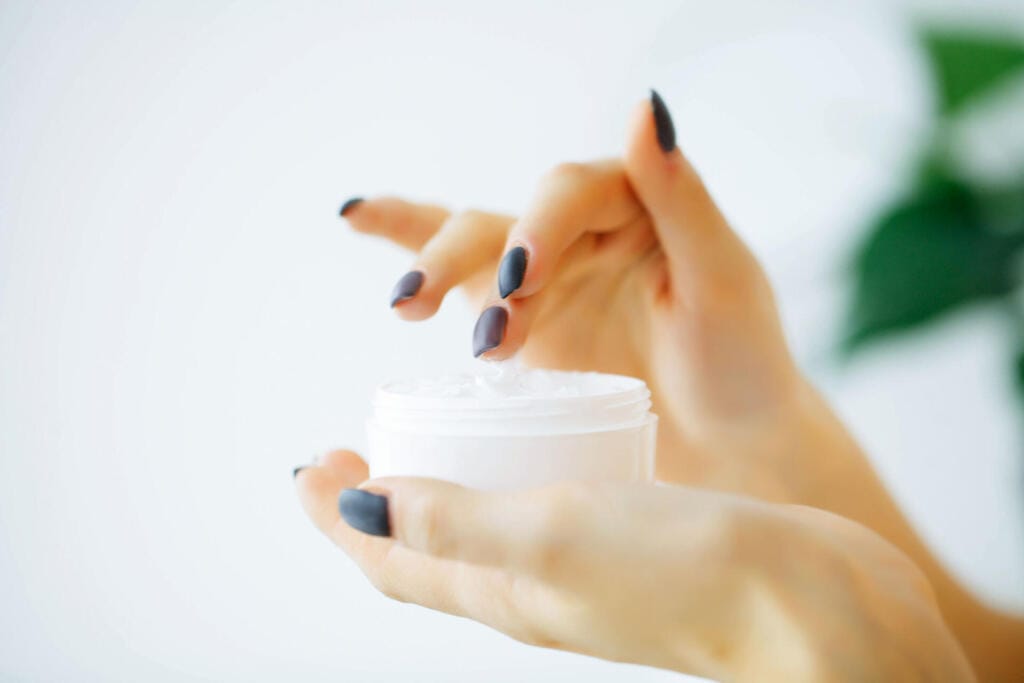
Incorporating Acids into Your Routine
Starting with acids can feel intimidating, but the key is moderation. Overuse is the quickest route to irritation, especially for sensitive skin. Begin with one acid at a time, applying it a few times a week to see how your skin reacts.
For beginners, using a product with a lower concentration of your chosen acid is crucial. Once your skin builds tolerance, you can adjust the frequency or explore higher-strength options. Always follow up with sunscreen in the morning—acids can increase your skin’s sensitivity to the sun.
Avoiding Pitfalls with Acid Use
Even the best acids can backfire if used incorrectly. Here are some tips to ensure they benefit rather than harm your skin:
- Patch Test First: Before slathering an acid-based product all over your face, test it on a small area to ensure it doesn’t cause irritation.
- Don’t Overdo It: Using multiple acids at once or too frequently can disrupt your skin’s barrier, leading to dryness and sensitivity.
- Combine Wisely: Avoid pairing acids with harsh ingredients like retinoids or benzoyl peroxide unless guided by a dermatologist.
The Science Behind Acids and Sensitive Skin
Here’s an impressive stat: a 2020 study published in the Journal of Clinical and Aesthetic Dermatology found that salicylic acid reduced acne lesions by 47% after four weeks of regular use. This highlights how effective acids can be when incorporated correctly.
Unlike harsher treatments, many acids have additional soothing or hydrating benefits, making them ideal for sensitive skin. For example, lactic acid has been shown to improve skin’s natural moisturizing factors, while azelaic acid has demonstrated anti-inflammatory effects in various clinical studies.
Finding Your Skin’s Perfect Match
Not all acids are created equal, and the right one for you depends on your unique skin concerns. If your acne is primarily blackheads or whiteheads, salicylic acid is a great fit. For those battling redness or post-inflammatory hyperpigmentation, azelaic acid is a standout. And if your skin feels perpetually dry or dull, lactic acid can gently renew it while boosting hydration.
Consistency is key. Acids don’t deliver overnight miracles, but with regular use, they can lead to significant improvements. Remember, patience pays off in skincare.
Final Words of Wisdom
Skincare is deeply personal, and what works wonders for one person might not work for another. The best acids for acne-prone sensitive skin are the ones that balance results with gentleness. By starting slow, prioritizing hydration, and always listening to your skin, you can harness the transformative power of acids while keeping irritation at bay.
Healthy, glowing skin is within reach—you just need the right tools to get there!



